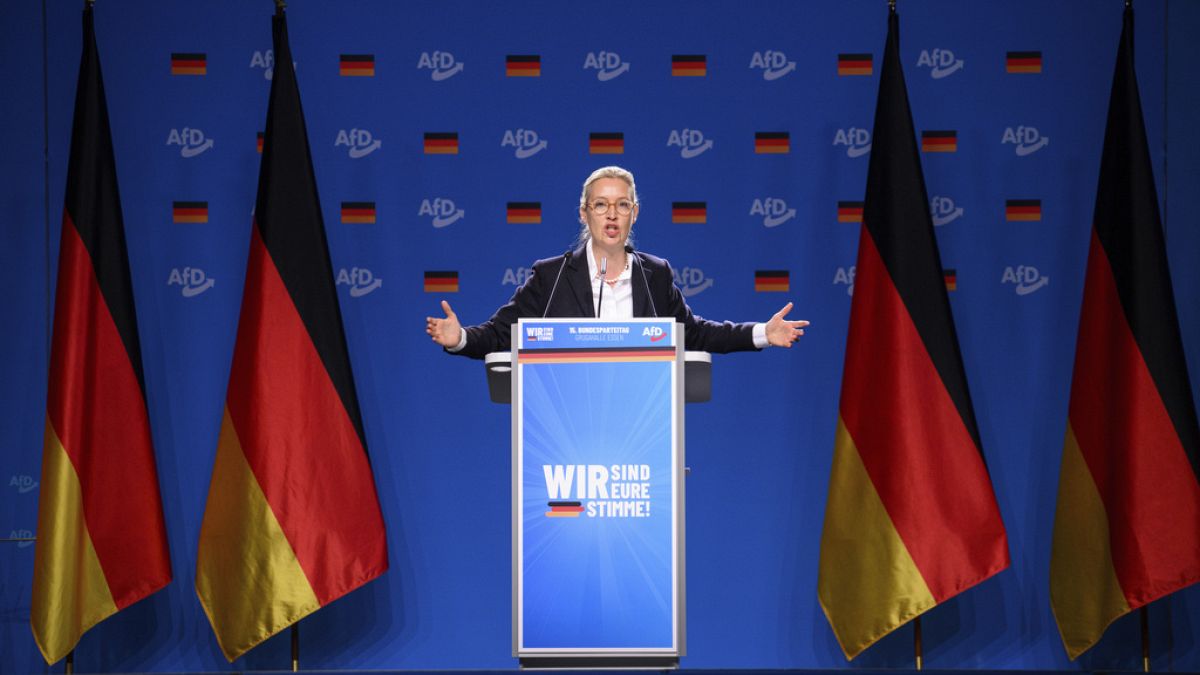The far-right party, Alternative for Germany (AfD), opened a convention amidst protests in Essen following their strong performance in the recent European elections. Opponents gathered in large numbers to demonstrate against the party and its co-leaders, Alice Weidel and Tino Chrupalla, who are seeking re-election. Police presence was heavy, with reports of up to 100,000 people expected to protest the AfD over the weekend.
Tensions rose as protesters attempted to breach barriers leading to the conference venue, resulting in clashes with police using pepper spray and batons. Masked demonstrators were reported to have attacked officers, leading to several arrests. Sit-ins and street blockades near the convention hall were staged by protesters, with AfD politicians being escorted to the venue by police. Despite the disruptions, Alice Weidel emphasized that the protests were undemocratic, as local authorities failed in their attempt to prevent the AfD rally.
The atmosphere outside the convention was further fueled by an anti-AfD rave titled “Bass against Hatred” which drew around 5,000 participants. Despite facing scandals and setbacks, the AfD managed to secure the second position in the European Parliament elections with 15.9% of the total vote. The party’s popularity in the eastern part of the country has raised their hopes of performing well in upcoming state elections, solidifying their position as a major political force in Germany.
Overall, the AfD convention was marked by a strong police presence and large-scale protests, emphasizing the growing divide in German society over the far-right party’s influence. Despite facing opposition and challenges, the AfD continues to maintain its position as a significant player in German politics, especially in the former communist eastern part of the country. The protests and clashes outside the convention hall reflect the deep-seated tensions surrounding the AfD and its controversial policies, highlighting the polarizing nature of the party within German society.
As the AfD moves forward with their convention and potential re-election of party leaders, the ongoing protests and demonstrations serve as a reminder of the challenges and opposition they face in a politically divided Germany. The party’s ability to maintain its support base, particularly in the eastern regions, despite controversies and setbacks, further solidifies its position as a force to be reckoned with in German politics. The clashes and confrontations outside the convention hall underscore the deep-seated divisions and ideological conflicts that continue to define the political landscape in Germany.










